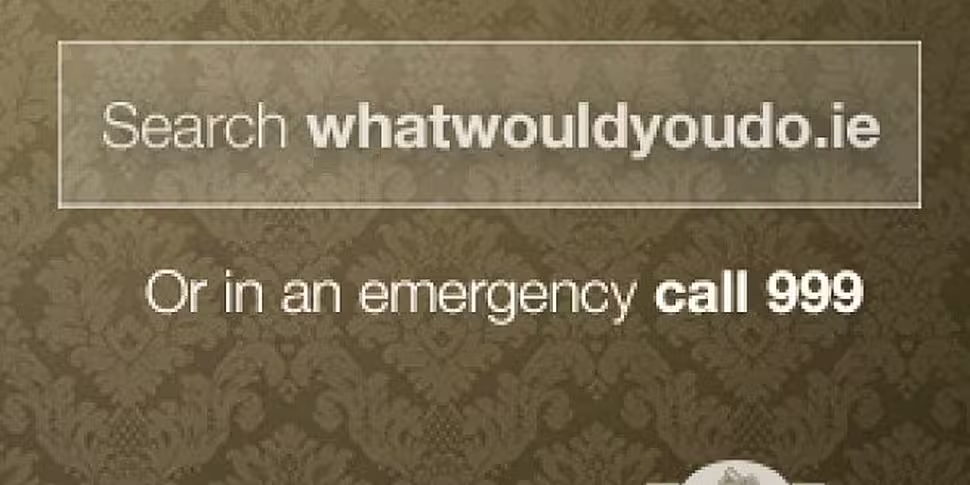In Ireland, over 300,000 people - both men and women, have been severely abused by a partner.
It can be physical or emotional abuse. It happens in every social class and culture and among people of every educational background.
Chances are, you know someone suffering from abuse. Even if it’s not immediately obvious.
Most abuse goes unreported, unseen, unheard. But worst of all, is the abuse, that’s ignored.
If we witness domestic violence but choose to walk away; we leave another victim behind.
We’re not just bystanders. We’re witnesses.
But how can you tell if someone is experiencing abuse? What are the signs?
Signs in someone you know
If you think someone you know is in an abusive situation, then maybe look for the following signs.
- Acting afraid of their partner.
- Do they talk about their temper, how possessive they are, or their jealousy?
- Anxious to please their partner.
- Do they seem overly anxious or unnaturally worried about keeping their partner happy?
- Restricted access to friends and family.
- Do you get the feeling they’re being held back from interacting with family and friends – Declined invites, last minute cancellations?
- Limited access to money or car.
- Do they have to ask for a partner’s permission to access money or make a car journey?
- Anxiety, depression.
- Have you noticed a change in their demeanor? Is there something they can’t or won’t talk about?
- Showing physical injuries. Do they have any unexplained or suspect injuries? Are they wearing unusual clothes to conceal injuries - sunglasses indoors, long sleeves on hot days?
Follow your instincts. If you’ve noticed these warning signs and expect that someone you know is being abused, don’t wait for them to approach you. Look for a private moment where you can express concern and let them know you’re there to give support.

Signs you're the victim
But what about you? Maybe you’re the one suffering from abuse, but don’t realise it.
Abusive people often blame problems on the person being abused.
If you’re wondering whether you’re in an abusive relationship, here are warning signs to look out for.
- Your partner has been in a violent relationship before. If they’ve been abusive before, it’s likely they will be abusive again, even with a new partner.
- You’re afraid of your partner.
- You’re constantly walking on egg shells because of their mood swings. You spend your time working out what kind of mood they’re in and the focus is always on their needs.
- They lose their temper easily. Often over minor issues.
- They criticise your friends or family - They may make it difficult for you to see them, or talk to them on your own.
- They regularly criticise or undermine you. About the way you look, the way you dress, your abilities as a parent etc.
- Your needs aren’t considered important or are ignored. They make the decisions in the relationship.
- You find it hard to get time away from them. When you spend time away from them, they want to know who you were with and where.
- They control your access to basic essentials. Things like your phone, car, food or money.
- They try to control aspects of your life.
- Whether you work and where - who you see and when - what you can spend - where you go...
It can often be difficult for an abused person to identify that they’re living in an abusive relationship. But there are supports available.
You’ll find a full list at www.whatwouldyoudo.ie.
Safety
Remember, if you suspect someone is being abused - before you get involved, ask yourself if it’s safe and legal to intervene.
If the situation is already violent or looks like its escalating quickly, don’t directly intervene. Call the Gardaí on 999.
The only effective bystander intervention is a non-violent one. If you see or suspect domestic abuse in Dublin visit whatwouldyoudo.ie or call 999
Anita Koppenhofer of Inchicore Outreach Centre told us that “for some women knowing that they have options is enough at the moment. For those women who want to follow through we’re there to support them in the next steps”.
The Outreach Centre in Inchicore have become known for their campaign ‘You don’t need a bruise to be abused’ which resonates with so many as abuse can be verbal, psychological and sexual, Anita told us.
“Reaching out to a friend or loved one who you feel is in an abusive relationship needs to be done cautiously but best thing to do is to reach out and make them aware of the confidential and financial services available to them. Open the door and break the silence, so much happens behind closed doors.”
SPIN1038 supporting Cosc
#whatwouldyoudo


A message from Cosc and the Dormant Account Fund supported by Spin 1038.












